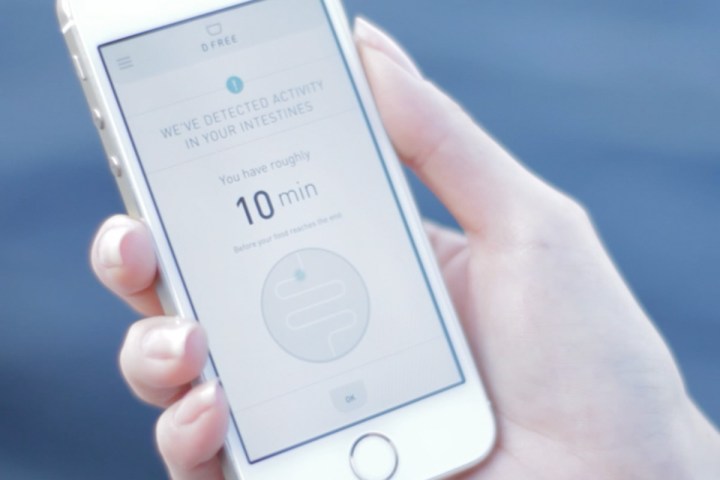
This device was specifically designed for the elderly or basically anyone that’s suffered a serious medical issue which has led to incontinence. For example, someone that has a physical disability would have plenty of time to find a handicap-accessible bathroom and prepare to use the facilities before the countdown timer reaches zero. Interestingly, the company is also looking at a smaller solution for babies, basically notifying parents when it’s nearly time to change a soiled diaper.
Speaking about how someone would interact with the Dfree, Triple W Japan’s solution development manager Ryohei Ochiai said “We are still in the process of looking at whether to use tape or belts to secure the device to the stomach. However, many elderly people are concerned about skin chafing. So we are looking at how to secure the device safely and solidly.” Hypothetically, the company could design an comfortable article of clothing that could serve as a device holder, perhaps a pair of pants or underwear.
The idea for the device sprouted from a need to serve Japan’s elderly population. Detailed by Reuters, Japan has one of the fastest growing, aging populations among developed countries. Roughly forty percent of Japan’s population will be 65 years or older by the time we reach 2060 and the entire population is expected to shrink by 30 percent over the same time period.
Editors' Recommendations
- This $350 wearable is one of the strangest gadgets I’ve ever used
- Heads up — your Google account may get deleted next month
- Is it time to shut your mouth? This smart wearable will let you know
- The EU is building your next iPhone, and it’s going to be fine
- Forget Apple’s newest iPad — the Galaxy Tab S8 should be your next tablet


